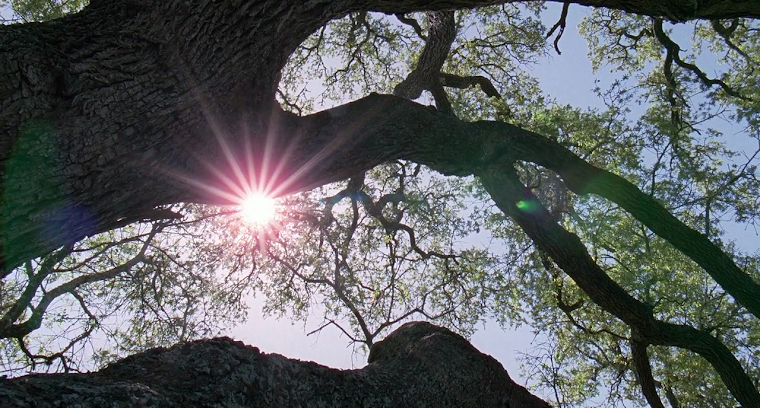
From the Iranian director who gave Children of Heaven to moviegoers everywhere and Homerun to Jack Neo, comes a rare movie revolving around adult characters. One might be forgiven for thinking that this marks a move away by Majid Majidi from his trademark magic realist, sometimes rustic, but always emotionally effective directing style, but nothing can be further from the truth. Yet at the same time, The Willow Tree does offer a subtle and sophisticated philosophy of cinema to critics who say the director relies too much on trite metaphors and cliched symbolism.
In Majid Majidi's latest masterpiece, Youseff (Parviz Parastui) is a kindly and awkward university don who has been living with blindness since a childhood accident involving fireworks. It is not an uncomfortable life that Youseff leads: he has a loving wife who reads his students' thesis for him, as well as perform clerical tasks like typing transcripts of his essays, a child who adores him, and an extended family who is there for him, no matter what. Hampered by his disability, true and complete happiness eludes him until the man regains his sight through a cornea transplant procedure - and this is where the film begins in earnest.
From the setup, it's clear in advance how the film will roughly proceed: the rediscovery of the delights of sight, the end of Youseff's long childhood and innocence, and the deflating of his dreams of having his sight complete his happiness. What makes this film a piece of art are the eventual choices that the director makes to cover these plot points, out of the scores of far easier, emotionally hamfisted, or visually showy options available.
Take for example the representation of sight regained - in the hands of a showy, less creative director, you'd have lots of camera candy, distorted, oversaturated, or just overdone visual effects to present to the audience the world from the eyes of the formerly blind man. It's just the sort of cheap repertoire that gives cinema the reputation of being an overly literal medium, where every visual metaphor is unimaginatively direct. In fact, audiences only get to see directly from the eyes of Youseff about three times in The Willow Tree. What we see, and what is more important in this story, is how Youseff begins to see things for the very first time, and not what he sees. In a way, Majid is far more acquainted with the limits of film as a representational medium than any of the younger, MTV-inspired directors of this day and age. Yet there is no doubt that when you are watching Youseff see things anew, that there is a certain mood of exuberance and uncertainty that is conveyed, far better than any distorting lenses or filters. What Majid has done here is to create a highly symbolic, but anti-symbolist visual language - an achievement in itself. This visual language is paralleled and augmented by the director's painstaking efforts to evoke the lost sense of touch in cinema - the audience can only see Youseff grasp, grapple, play with surfaces and textures, but can never do so themselves.
In a way, the director's ironic treatment of the representation of sight and touch in film leads on naturally to the twist and the true story of the movie: the end of Youseff's prolonged childhood and his simultaneous loss of innocence. What is paradise to a blind man - will it remain a paradise once he regains his sight? What is love and care to a blind man - will his relation to his caregivers and loved ones remain the same once he is able-bodied and able to fend for himself again? Filmed at times as a tone poem, the transition to emotional drama that begins to take over is handled very well - as the film burst with ironies and seething with resentment, what's noteworthy is how Majid's script and directing is extremely subtle and restrained, compared to how a Mediacorp television drama would play out the exact same scenarios. And if this isn't enough, do note that the emotional drama is infused with a philosophical and melancholic touch, courtesy of Sufi devotional poetry by Rumi.
Acting-wise, this marvellous if subtle film is bolstered by the efforts of Parviz Parastui, who effectively plays two different roles that are not entirely separate from each other: the likeable if helpless, childlike don and the troubled but reborn, re-sighted man who grows in self-hood. Roya Taymourian shines, in a classic movie sense, as his onscreen wife - she compares well to a younger Lee Heung Kam!
The Willow Tree is a movie I'd recommend for arthouse fans, as well as any moviegoer hankering for some subtle fare after last month's summer blockbusters. Buy a ticket, take in the movie slowly, and you won't be disappointed.
